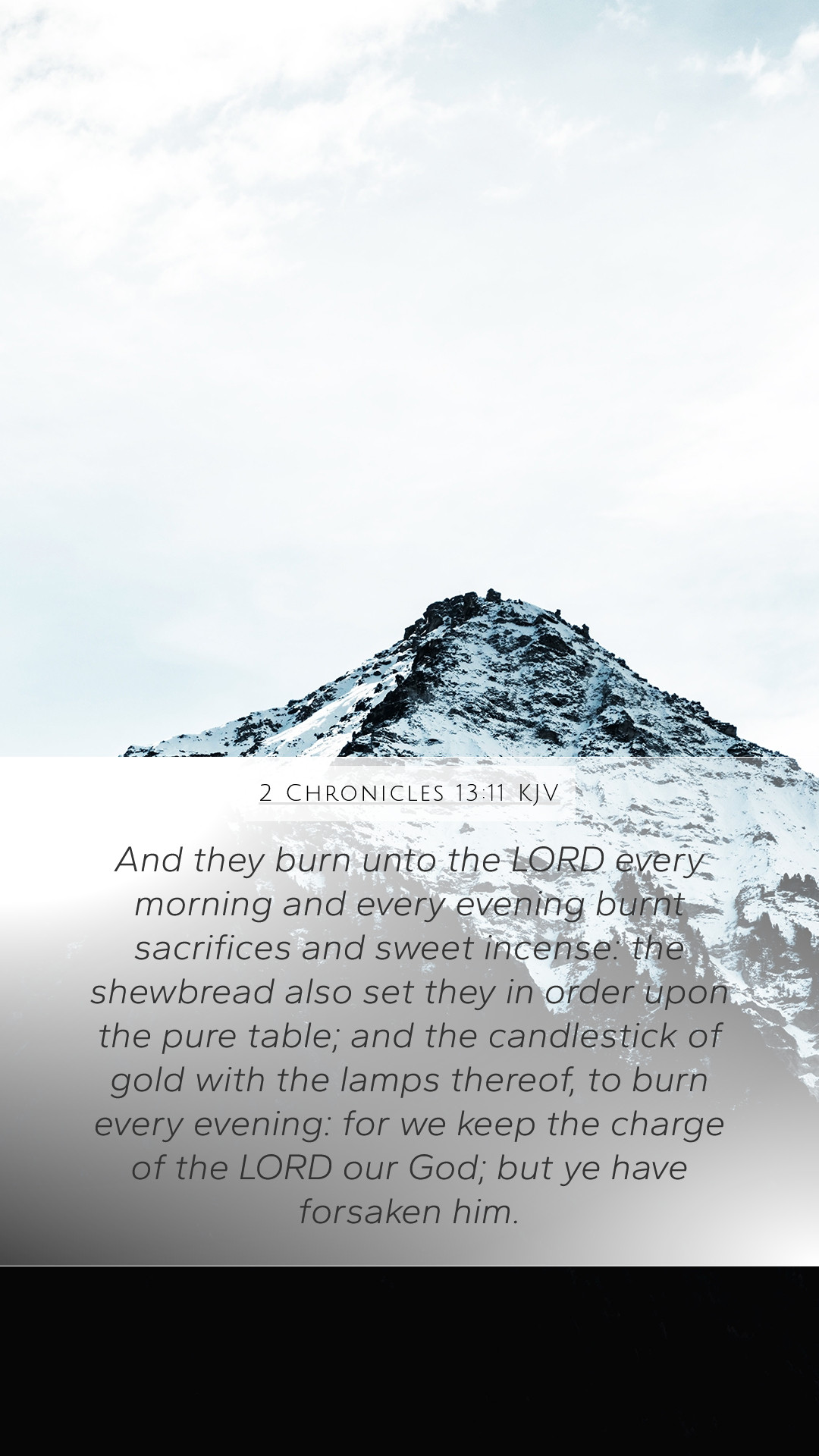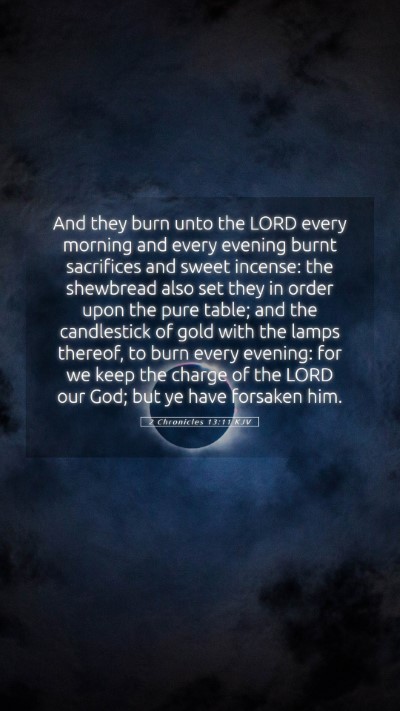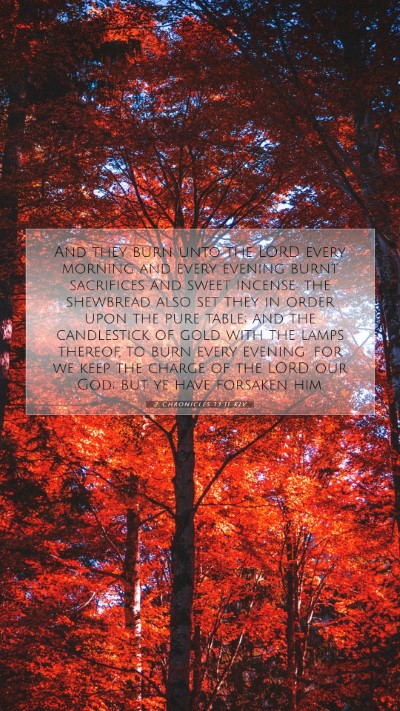Understanding 2 Chronicles 13:11
2 Chronicles 13:11 states: "And they offer unto the Lord every morning and every evening burnt sacrifices and sweet incense: the shewbread also set they in order upon the pure table; and the candlestick of gold with the lamps thereof, to burn every evening: for we keep the charge of the Lord our God; but ye have forsaken him." This verse embodies deep theological and practical insights regarding worship and fidelity to God.
Contextual Background
The context of this verse involves the reign of King Abijah of Judah, who is addressing the northern kingdom of Israel. Both kingdoms had diverged significantly in their worship practices after the split. Abijah's proclamation serves as both a reminder and an admonition regarding the importance of maintaining proper worship as appointed by God.
Commentary Insights
Matthew Henry's Commentary
Matthew Henry emphasizes the significance of continuous worship in the life of believers, stating that morning and evening sacrifices represent a daily commitment to God. He notes that the phrase "every morning and every evening" underscores the need for consistent devotion and the importance of setting aside time for God in our daily lives. This consistent worship serves as a powerful declaration of faith and allegiance to God.
Albert Barnes' Commentary
Albert Barnes focuses on the notion of "keeping the charge of the Lord." He explains that the priests in Judah held a sacred responsibility to uphold the divine ordinances established in the Law of Moses. Barnes highlights the contrast between the devotion of Judah and the abandonment of God's ways in Israel. This serves as a reminder that fidelity to God's commandments is crucial for receiving His blessings.
Adam Clarke's Commentary
Adam Clarke discusses the importance of the rituals mentioned in the verse, particularly the offerings of burnt sacrifices and the maintaining of the candlestick and the showbread. Clarke notes that these practices symbolize a vibrant, living faith that relies on the grace and favor of God. He also points out the spiritual symbolism of light and sustenance, relating them to the presence of God among His people.
Application for Today
This verse calls believers to understand the importance of daily worship and the need to uphold their spiritual commitments. It encourages a systematic approach to devotion, advocating that both personal and corporate worship should be prioritized. The message illustrates that neglecting such commitments can lead to spiritual decline, echoing the experiences of Israel.
Bible Study Insights
For those participating in Bible study groups or engaging in online Bible study, this verse offers rich material for discussion. Here are some insights to consider:
- Examine the ritual practices in ancient Israel and their significance for contemporary worship.
- Discuss the implications of "keeping the charge of the Lord" in today’s church context.
- Reflect on how personal commitments to daily worship can shape our lives.
Cross References
This verse resonates with several related scriptures that shed further light on its meaning:
- 1 Chronicles 16:37-43 - A similar depiction of worship practices during the reign of David.
- Exodus 30:7-8 - Instructions for daily offerings and incense before the Lord.
- Hebrews 13:15 - The New Testament parallels of continual worship and sacrifices of praise.
Conclusion
This analysis of 2 Chronicles 13:11, through various Bible verse meanings and theological commentaries, encourages a deeper bible verse understanding. Engaging with this text highlights both the necessity of daily devotion and the historical significance of worship in the life of God’s people. As believers seek to apply these truths, they will find a deeper connection to the divine and a stronger commitment to living out their faith.


